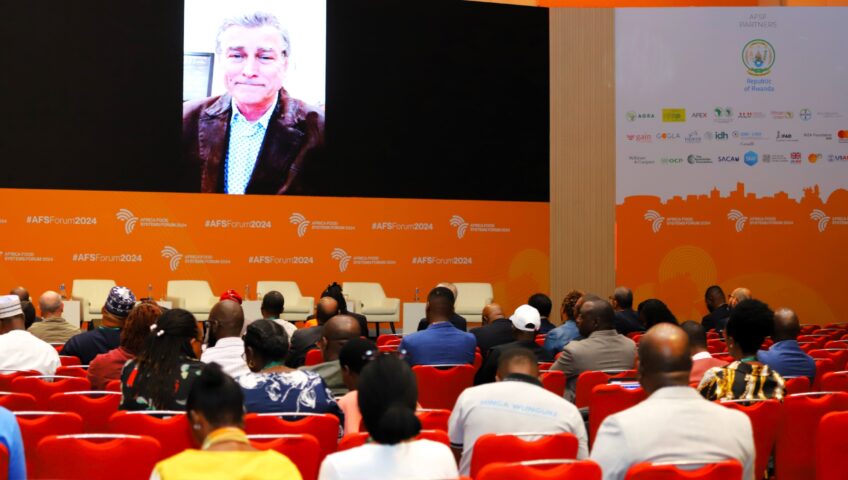“The success of the BASICS project demonstrates the possibilities that exist in Africa to change the narrative of agriculture if leaders on the continent so desire.”
Those were the words of Lawrence Kent, Senior Program Officer with the Bill and Melinda Gates Foundation (BMGF) while speaking at a side event organised by the Sasakawa Africa Association (SAA) at the just concluded African Food Systems Forum (AFSF) in Kigali, the Rwandan capital. The side event, tagged, Food Systems Transformation: Emerging Insights from Mega Initiatives, was organised in collaboration with the Islamic Development Bank (IsDB), African Development Bank (AfDB), AGRA Nigeria, and the Building an Economically Sustainable Integrated Cassava Seed System, Phase 2 (BASICS-II).
BMGF is the funder of the BASICS-II project that is being implemented by the International Institute of Tropical Agriculture (IITA) and its partners. The project is principally being implemented in Nigeria and Tanzania with spin-offs in DR Congo, Sierra Leone, Gabon, Kenya and Togo. According to Kent, BMGF’s investment in the project has actualized the goal of giving Nigerian and Tanzanian farmers access to improved disease-free cassava varieties in an economically sustainable manner.
“Today, as we speak, the project has been able to achieve its goal by making available improved cassava seeds at affordable prices to farmers, thereby accelerating the diffusion of improved varieties,” he said. “Four early generation seed companies have been established in Nigeria and Tanzania, and hundreds of cassava seed entrepreneurs have sprung up. The CSEs are making decent living from selling cassava stems at a premium to their fellow farmers.”
The BMGF boss who was delivering special remarks at the side event, expressed delight at how much the project had gone in transforming cassava cultivation, and at the same time, supporting industries and livelihoods.
He noted that “some of these CSEs have built better houses for themselves, while some are sending their children to school up to university level,” adding that “the availability of improved stems/seeds has led to increased productivity, thereby addressing the food insecurity question and increasing raw materials for industries.”
Earlier in a framing presentation, the Country Director of SAA Nigeria, Dr Godwin Atser, whose organisation is leading the scaling component of BASICS-II and developing CSEs in Nasarawa and Benue State in Nigeria, stated that “farmers now record at least 30 tons of cassava per hectare from the use of improved varieties, as opposed to the 15 tons per hectare gotten from traditional varieties.”
The side event facilitated knowledge sharing on successful intervention models and their adaptability to various geographies. The panel of discussants were leaders of the BASICS-II project; the Kano State Agropastoral Development Project (KSADP), TAAT ClearingHouse, AGRA Nigeria Consortium projects and Nippon Foundation grants to SAA.
Commenting on the successes recorded by those initiatives, Kent urged that their templates be replicated in other geographies seeking to strengthen seed systems and make transformative changes in the agricultural sector.

